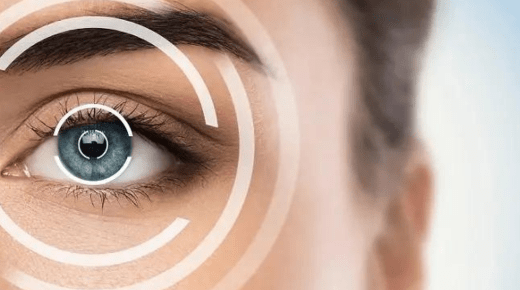1. Introduction to LASIK Eye Surgery
LASIK eye surgery is a popular procedure for correcting vision problems like nearsightedness, farsightedness, and astigmatism. Many wonder if Medicaid, a government healthcare program, covers the cost of this surgery.
2. Overview of Medicaid Coverage
Medicaid provides healthcare coverage to low-income individuals and families, but coverage varies by state, and not all services are covered.
3. Medicaid Coverage for Vision Care
Medicaid typically covers basic vision care services like eye exams, glasses, and contact lenses, but coverage for elective procedures like LASIK surgery varies.
4. Elective vs. Medically Necessary Procedures
LASIK surgery is considered an elective procedure since it’s not usually essential for maintaining overall eye health or preventing vision loss.
5. Exceptions for Medically Necessary Cases
In some cases, Medicaid may cover LASIK surgery if it’s deemed medically necessary to correct vision problems that significantly impact daily life or employment.
6. Prior Authorization Requirements
Even if LASIK surgery is considered medically necessary, Medicaid may require prior authorization to ensure the procedure meets specific criteria for coverage.
7. State-Specific Coverage Policies
Each state has its own Medicaid program with unique coverage policies and guidelines. Some states may offer more comprehensive coverage for vision-related procedures like LASIK.
8. Coverage for Low-Income Individuals
Medicaid is designed to provide healthcare coverage for individuals and families with limited financial resources, making it an essential resource for accessing necessary medical services.
9. Cost Considerations for LASIK Surgery
Without Medicaid coverage, LASIK surgery can be expensive, with costs ranging from a few thousand to several thousand dollars per eye, depending on various factors.
10. Payment Options and Financing
For individuals without Medicaid coverage, payment options like financing plans or flexible spending accounts (FSAs) may help make LASIK surgery more affordable.
11. Medicaid Managed Care Plans
Some states offer Medicaid managed care plans that may cover additional services or have different coverage rules compared to traditional Medicaid fee-for-service plans.
12. Consultation with Medicaid Provider
To determine coverage eligibility for LASIK surgery, it’s essential to consult with your Medicaid provider or state Medicaid office for specific information about coverage policies and requirements.
13. Alternative Vision Correction Options
If LASIK surgery isn’t covered by Medicaid or isn’t a viable option, alternative vision correction methods like glasses, contact lenses, or other surgical procedures may be considered.
14. Advocating for Coverage
If you believe LASIK surgery is medically necessary for your vision health and well-being, you can advocate for coverage by providing supporting documentation and working with your healthcare provider.
15. Consideration for Pre-existing Conditions
Medicaid coverage for LASIK surgery may be influenced by pre-existing eye conditions or other health factors that impact vision and overall health.
16. Coverage for Children and Young Adults
Medicaid coverage for LASIK surgery may differ for children and young adults compared to older adults, with additional considerations for developmental stages and vision needs.
17. Inclusion in Medicaid Expansion Programs
States that have expanded Medicaid under the Affordable Care Act may offer more extensive coverage options, potentially including elective procedures like LASIK surgery.
18. Reimbursement Rates and Provider Participation
Provider participation in Medicaid and reimbursement rates for services can vary by state, impacting access to LASIK surgery and other elective procedures.
19. Importance of Regular Eye Exams
Regardless of LASIK surgery coverage, regular eye exam are essential for maintaining overall eye health and detecting vision problems early, especially for Medicaid beneficiaries.
20. Medicaid Coverage for Complications
Medicaid may cover complications or follow-up care related to LASIK surgery if deemed medically necessary, providing additional financial assistance for post-operative issues.
21. Coverage Appeals Process
If Medicaid denies coverage for LASIK surgery, beneficiaries have the right to appeal the decision through the Medicaid appeals process, seeking reconsideration based on individual circumstances.
22. Consideration for Alternative Coverage Options
In addition to Medicaid, individuals may explore alternative coverage options like private health insurance plans or employer-sponsored vision benefits for LASIK surgery coverage.
23. Discussion with Eye Care Provider
Discussing LASIK surgery options with your eye care provider can help you understand the potential benefits, risks, and costs associated with the procedure, guiding informed decision-making.
24. Conclusion: Exploring Coverage Options
While Medicaid may cover some vision care services, coverage for LASIK surgery varies by state and individual circumstances. Exploring coverage options, consulting with Medicaid providers, and advocating for coverage when medically necessary are essential steps in accessing vision correction treatments like LASIK surgery.
25. Resources for Additional Information
For more information about Medicaid coverage for LASIK surgery and other vision care services, individuals can contact their state Medicaid office, healthcare provider, or local Medicaid managed care plan for guidance and assistance.

